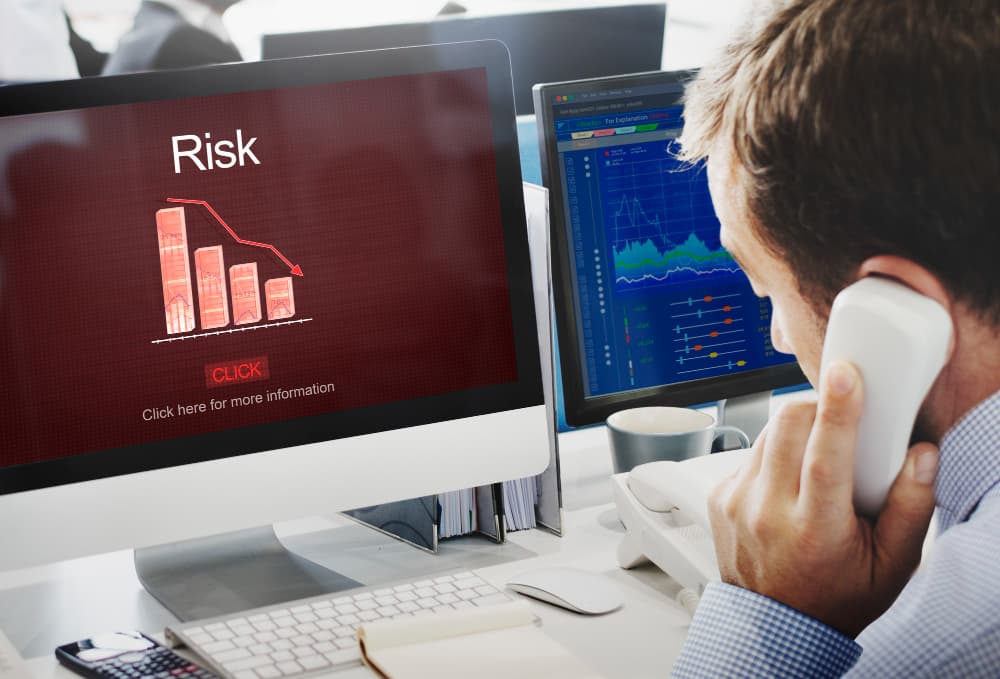EFFECTS OF INSIDER TRADING ON THE NIGERIA STOCK EXCHANGE.
Insider trading gives certain persons an unfair advantage over other investors and questions the integrity of the market. When this becomes rampant, investors lose confidence in the stock market, discouraging new investments and stunting economic growth.

INTRODUCTION
The powers to govern a cooperate structure of any incorporated entity are usually vested in some persons. Amongst some of these persons are directors, who are mandated to perform specific fiduciary duties and act in the best interests of the company. In most cases, they are saddled with the administrative responsibility of keeping the company “alive”. While other sacrosanct members of a company include shareholders, investors, etc., they do not play an active role in the management of the company, unlike directors. It is ordinarily the work nature of directors & members of a company to handle confidential & sensitive information detrimental to the growth & loss of the company.
Both public & private companies can be listed on the Nigeria Stock Exchange. The capital markets play a critical role in national and economic development. The financial arena that offers a trading platform for stocks and securities issued by companies is known as the capital market. Therefore, it is imperative that these markets and trading floors be properly controlled during their business operations to improve market efficiency, get rid of fraud, and guarantee consistency, accountability, and full transparency. Some of the instruments traded on the capital market are shares, government & corporate bonds.
Insider trading is regarded as the buying or selling of securities either by corporate or private insiders, employing non-public information to their selfish advantage either to amass huge returns or to prevent large losses. Non-public information is regarded as advantaged, price-sensitive, and material information which the rest of the public is not privy to. For a company regulated by the NSE, confidential & sensitive information that can ultimately influence the portfolio of the company is sacred. This act is considered illegal in Nigeria because it gives the person an unfair advantage over other investors and questions the integrity of the market.
Often, insider trading occurs owing to the compromising of company executives as well as company employees, together with the bankers of the company and its auditors, stockholders and shareholders, financial advisers and brokers, and a host of other related parties, trade in the company’s stocks and bonds based on internal information that is yet to be made available to the shareholders and the investing public. The motivation for insider dealing is either to make an abnormal profit or avoid loss in the sale or purchase of the company’s shares by insiders. The scope of related parties has been expanded to include the directors of listed companies alongside their spouses, children, relatives, and close friends.
The enforcement of insider trading in the Nigeria Capital Market is carried out by regulatory bodies such as the Securities & Exchange Commission and the Nigeria Stock Exchange.
This article briefly discusses what insider trading means and how it has affected the Nigeria Capital Market and the legal frameworks accrued to it.
2.0 LEGAL FRAMEWORK GUIDING INSIDER TRADING IN NIGERIA.
Nigeria Legislation did not recognize insider trading until the advent of the Nigerian Law Reform Commission which was what led to the enactment of the provisions regulating insider dealing in the Companies and Allied Matters Act 1990 (CAMA), the CAMA provisions were repealed and replaced by the Investments and Securities Act 1999 (ISA 1999). However, upon the repeal of the ISA 1999, the Investments and Securities Act 2007 was enacted to contain substantial provisions on insider dealing this is provided for in Sectio 614–620. The foregoing has led to the passing of several bodies of legislation with provisions on the control and regulation of the occurrence of insider trading in Nigeria. One such law is the Investment and Security Act of 2007.
The primary law regulating insider trading in Nigeria is the Investment and Securities Act 2007, which empowers the Securities and Exchange Commission ("SEC") to enforce rules and regulations to prevent insider trading.
According to Section 315 ISA Act 2007 "insider" means-
any person who is or is connected with the company in one or more of the following capacities.
a director of the company or a related company.
an officer of the company or a related company.
an employer of the company or a related company.
an employee of the company, involved in a professional or business relationship to the company.
any shareholder of the company who owns 5 percent or more of any class of securities or any person who is or can be deemed to have any relationship with the company or member.
members of the audit committee of a company; and
any of the persons listed in paragraph (a), who by virtue of having related to any such person or connected with the company in any other way, possesses unpublished price-sensitive information in relation to the securities of the company, and any reference to unpublished price sensitive information in relation to any securities of a company is a reference to information which-
relates to specific matters relating or of concern (directly or indirectly) to that company, that is, is not of a general nature relating or of concern to that company; and
is not generally known to those persons who are accustomed to or would be likely to deal in those securities but which would, if it were generally known to them be likely materially to affect the price of those securities;
"Insider dealing" includes insider trading and occurs when a person or group of persons who having some confidential and price-sensitive information not generally available to the public, utilizes such information to buy or sell securities for the benefit of himself, themselves or any person;
Section 111 (1) of the ISA 2007 provides for the prohibition of insider trading in Nigeria as follows:
"Subject to section 104 of this Act, a person who is an insider of a company shall not buy or sell, or otherwise deal in the securities of the company which are offered to the public for sale or subscription if he has information which he knows is unpublished price sensitive information about those securities".
Section 115 of the ISA 2007 also provides the penalty for insider trading and other criminal offenses as follows:
"Any person who contravenes any of the provisions of this part of this Act commits an offence and is liable on conviction —
(a) in the case of a person not being a body corporate, to
(i) a fine of not less than x500,000 or an amount equivalent to double the amount of profit derived by him or loss averted using the information obtained in contravention of any of the provisions of this part; or
(ii) to imprisonment for a term not exceeding seven years; or
(b) in the case of a person being a body corporate, to a fine not less than x1,000,000 or an amount equivalent to twice the amount of profit derived by it or loss averted by the use of the information obtained in contravention of any of the provisions of this part."
Upon consideration of the foregoing provision, it may be safe to conclude that for any person to contravene the provision of Section 111(1) of the ISA, the following conditions must be met:
(a) the person in question must be an insider of a company
(b) the insider must have bought, sold, and otherwise dealt in the securities of the company which are offered to the public for sale or subscription
(c) the insider must have had information that he knew was unpublished price-sensitive information about those securities that he bought, sold, or otherwise dealt in, 10offered either to the public for sale or subscription.
3.0 THE EFFECT OF INSIDER TRADING ON THE NIGERIAN ECONOMY
Over the years, most individuals, investors, and foreign corporate organizations have lost faith in the Nigerian Stock Exchange due to one/many factors and insider trading has been a major factor to consider. Despite being statutorily defined, many illegal & unethical practices of this kind have given some classes of persons an unfair advantage over others.
Here are some of the notable effects of insider trading.
Market Manipulation: Insiders can manipulate market prices and create an unfair playing field for other investors who do not have access to the same information when they use privileged information to buy or sell shares. Investor confidence may be damaged as a result, and faith in the integrity and fairness of the financial markets may be lost.
Loss of Investor Confidence: When insider trading becomes rampant, investors—both local and foreign—lose confidence in the stock market. A market where some participants have unfair advantages discourages new investments and leads to capital flight, stunting economic growth.
Reduction in Market Efficiency: A well-functioning stock market thrives on transparency and equal access to information. Insider trading disrupts this balance, making stock prices reflect privileged information rather than the true value of a company. This misalignment can cause misallocation of resources and reduce overall market efficiency.
Legal and Financial Repercussions: Companies and individuals found guilty of insider trading face legal penalties, including heavy fines and imprisonment. Beyond legal consequences, a company associated with insider trading may suffer reputational damage, leading to declining stock prices and loss of stakeholder trust. Section 115 of the ISA 2007 provides penalties for insider trading, including fines of at least ₦500,000 or double the profit gained and imprisonment for up to seven years.
Disincentive for Fair Competition: When certain individuals or entities benefit unfairly from insider trading, it discourages honest participation in the market. Investors who rely on legitimate analysis and research may feel discouraged, leading to reduced market participation and stagnation in economic activities.
Impact on Economic Growth: A capital market riddled with unethical trading practices can hinder overall economic growth. When investors perceive the market as rigged, they are less likely to invest, reducing the flow of capital into productive sectors. This affects employment, business expansion, and national development.
4.0 MITIGATING INSIDER TRADING IN NIGERIA
To curtail the adverse effects of insider trading, regulatory bodies such as the SEC and the NSE have implemented stringent measures, including:
Strengthening Legal Frameworks: Continuous review and amendment of insider trading laws to close loopholes and enforce stricter penalties for offenders. The ISA 2007 remains the primary legislation governing insider trading in Nigeria.
Improved Market Surveillance: Utilizing advanced technology and analytics to detect suspicious trading patterns and swiftly act against market manipulators. The SEC, under Section 13 of the ISA 2007, has the power to investigate and prosecute insider trading offenses.
Increased Transparency and Disclosure: Companies are required to disclose material information promptly to prevent selective access to privileged information. The Nigerian Code of Corporate Governance 2018 also mandates proper disclosure requirements to prevent unethical practices.
Investor Education: Creating awareness among investors and corporate executives about the consequences of insider trading and promoting ethical trading practices.
Global Collaboration: Partnering with international financial bodies to monitor cross-border insider trading activities and enforce global best practices.
5.0 CONCLUSION
Insider trading remains a significant challenge to the integrity of the NSE. While laws exist to curb its occurrence, enforcement and compliance are critical to ensuring a fair and transparent trading environment. Strengthening regulatory measures, increasing market transparency, and enhancing investor confidence will go a long way in mitigating the negative effects of insider trading. The success of the Nigerian stock market depends on maintaining an equitable trading environment where all investors, regardless of status, operate on a level playing field.
Legal Disclaimer
This article is for informational purposes only and does not constitute legal advice. The information provided may not reflect the most current legal developments. For specific legal guidance, please consult with a qualified attorney at Thirteenth Firm.
